
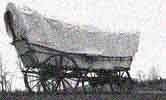
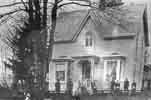
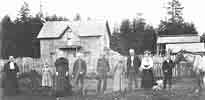
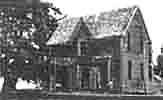
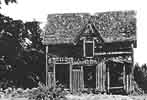
| Home |
| Early Life |
| Maps |
| Oregon Laws |
| The Trail |
| Bush Biography |
| Tumwater Born |
| Thurston County |
| State History |
| Bush
Farm Today |
| FAQs |
| Timeline |
An Illustrated History of the State of Washingtonby Rev. H.K. Hines 1893Page
367
The subject of this sketch was born near Sandusky, Ohio, May 6, 1824. His parents, Samuel and Jane (Bauser) Ferguson, were natives of Pennsylvania and Ohio respectively, and wore married in the latter State. They soon afterward emigrated to Quincy, Illinois, at that time on the frontier of civilization, where they re- sided until the subject of this sketch was seventeen years of age. They then removed to Savannah, Missouri, where they passed the remainder of their lives. They had twelve children, of whom three survive: V. F., a resident of Iowa; J. F., in Oregon; and Jesse, whose name heads this sketch. Mr. Ferguson, of this notice, accompanied his parents to Savannah, Missouri, where he remained three years. At the end of that time, on May 6, 1844, he started, as already noted, with M. Simmons, George Bush and J. McCallister for the Pacific coast. They experienced some trouble at first from the Indians, who stole their stock, but otherwise pursued their way unmolested. They had comparatively easy traveling until reaching Fort Hall, to which point the road had been made by the Hudson's Bay Company in 1843; but from there the party were obliged to continue their way to the Dalles with wagons. They spent a short time here during the winter of 1844, and then hired a batteau from the Hudson's Bay Company, in which they came down the Columbia river, passing through the place where the proud city of Portland now stands; where then was no sign of habitation, a dense forest marking the scene, and continuing their way to Oregon City, at that time a straggling hamlet. They remained here almost nine months, engaged in logging, lumbering and carpentering, when in the summer of 1845 they went by canoe to Astoria, Oregon, where they remained four months. They then started for northern Oregon, or what is now the State of Washington, where, late in the fall of 1845, they arrived at the place now known as Tumwater, but which then, and for years afterward, bore the name of New Market. They worked during the winter at making shingles for the Hudson's Bay Company, for shipment to the Sandwich Islands. This company then had their headquarters at Fort Nisqually, with Dr. Tolmie in charge. The only tools they had for making shingles were an ax and draw-knife, and they worked in the forest where Olympia now stands. The subject of this sketch remained in this vicinity until June, 1849, in the meantime having taken a claim of 320 acres, situated two miles from Tumwater. on Bush prairie. It will be remembered that at about this time gold was discovered in California, and, like many others, Mr. Ferguson was seized with a desire to visit this El Dorado. Accordingly, in 1849 he took passage on a lumber-laden vessel for the Golden Slate, where he arrived in due time. Owing to rains, however, he did not do any mining, and shortly afterward returned to Columbia river, making a short stop on Sophie's island, from which place he proceeded once more to New Market, and this time found several white families settled on the present site of Olympia. He now commenced working at making square timbers to ship to San Francisco, in which occupation he was employed for two years, when, in 1851, he removed to his claim to live. He remained on his farm during the winter of that year, when the English sloop Georgiana sailed into the harbor, hailing from Sydney, Australia. On her departure Mr. Ferguson, with twenty-five others, departed for Queen Charlotte's island in search of gold. The sloop reached the island without any casualty of note, but here, at the end of the voyage, the boat was driven ashore in a gale. Soon afterward the Indians rushed on board, robbed the passengers of all they had, took them prisoners, and kept them for fifty-four days, until they were rescued by the United States Government vessel Damerescove, under Captain Balch. The rescue of the prisoners was made by ransom, the United States Government buying goods of the Hudson's Bay Company, at Victoria, to the amount of $1,500 to give to the Indians. This experience cured Mr. Ferguson of the gold fever, and he has since been content to reside uninterruptedly on his farm, satisfied with his vast amount of land and stock. During the Indian war of 1855-'56, Mr. Ferguson built a block-house on his claim, in which he continued to live during that troublous time in preference to seeking protection in a fort, he being one of the few who continued to remain on their land. In 1850 Mr. Ferguson was married to Jane Rutledge, a native of Ohio, who crossed the plains with her parents, William and Margarette Rutledge, who settled in Thurston County in 1850. She was a faithful and affectionate helpmate, sharing without complaint all her husband's hardships and labors for ten years, when she died, leaving five children to his care. These are: Henry F., David S. and Samuel, all married and residing in Thurston County; Sarah J., wife of William Lee, living on part of her father's claim; and Annie, who married J. Callou, resides in Kamilche. Mr. Ferguson has never remarried, but resides with his daughter on the old homestead, which he reclaimed from a wilderness and has made to blossom as a rose. |
| Site Map |